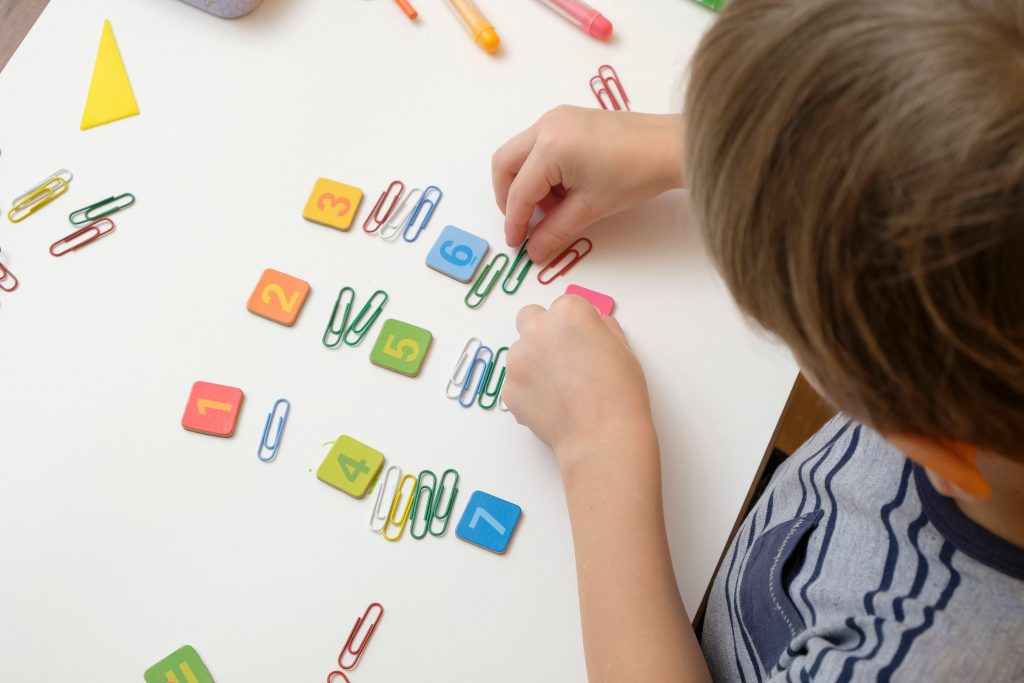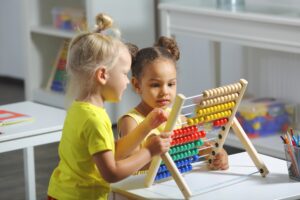People who care for young children — whether parents, grandparents or early childhood educators — can help children develop their math skills. They can do this in the context of everyday activities, such as setting the table, distributing snacks, playing games, and reading books. But some activities may be more effective than others in supporting young children’s math learning.
In a recent study, Cristina Carrazza and Susan Levine[i] asked what kind of counting books led to more math learning in young children – counting books that prompted children to count sets and state how many objects are in the set (the cardinal value of the set) or counting books that included the same counting prompts embedded in a meaningful goal-based story (e.g., Sally wanted to find enough treats to share with her friends). Parents were given one of these two kinds of counting books to share with their children over a month, or a control book that involved color names and no counting. They measured children’s counting skill and knowledge of the meaning of count words (e.g., “three” refers to sets of three) at the beginning, middle and end of the month.
When they examined changes in children’s counting skills and understandings they found that children in the rich, story condition gained significantly more counting skill and more knowledge of the meaning of the count words than children in the other two conditions. The message of these findings is clear – young children’s number knowledge advances more when counting occurs in a meaningful context than when it is presented as a skill they need to learn without making its purpose clear.
It is very likely that the context in which children are learning math skills matters, not just when reading counting books, but also for other math activities. Like adults, children are more motivated to learn when an activity has a goal they can relate to. Fortunately, in our everyday activities and in play with young children, there are many opportunities to make math meaningful.
Children’s interests provide us with a lens into making math meaningful for them. If they are interested in a sport, they might be motivated to figure out how many baskets their favorite team needs to catch up to the opponent. If they like to help in the kitchen, a parent might ask how many plates are needed for a family of four when two friends are joining them for dinner. If they are passionate about fairness, they might be interested in making sure every child gets the same number of crackers at snack. If they spend a lot of time in pretend play, they might be asked how many bears are having a picnic in the forest. The important takeaway is that making math meaningful is a critical ingredient in supporting children’s math learning.
[i] Carrazza C, Levine SC. Less is not always more: Rich and meaningful counting books lead to greater gains in number understanding than sparse counting books. Dev Psychol. 2024 Sep 30. doi: 10.1037/dev0001826. Epub ahead of print. PMID: 39347779.



